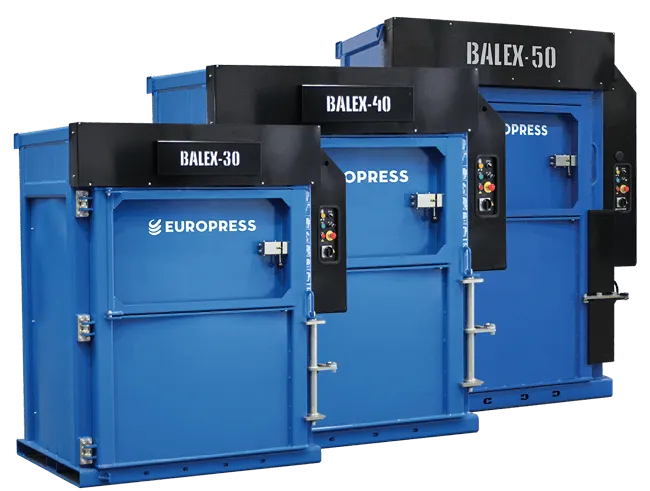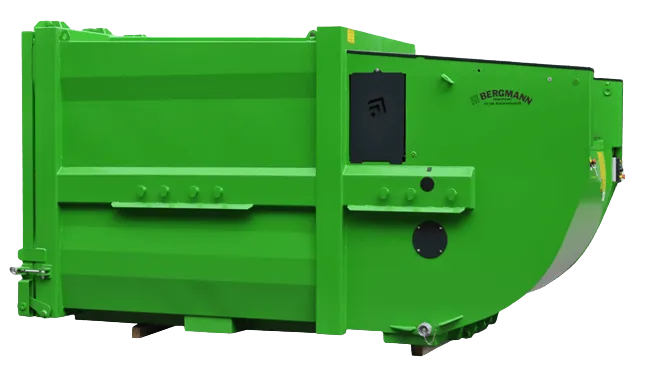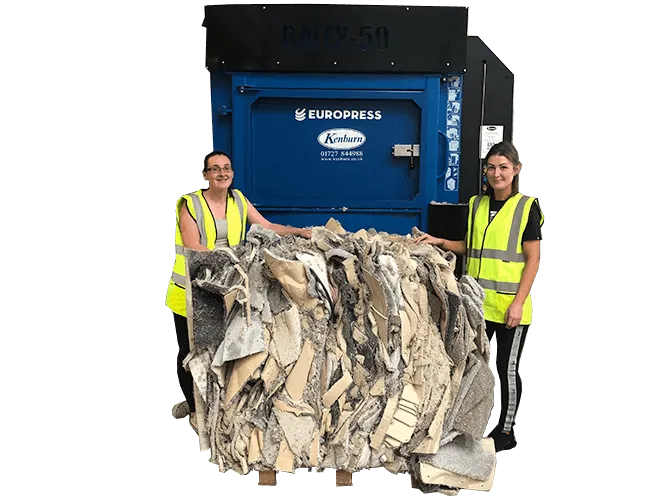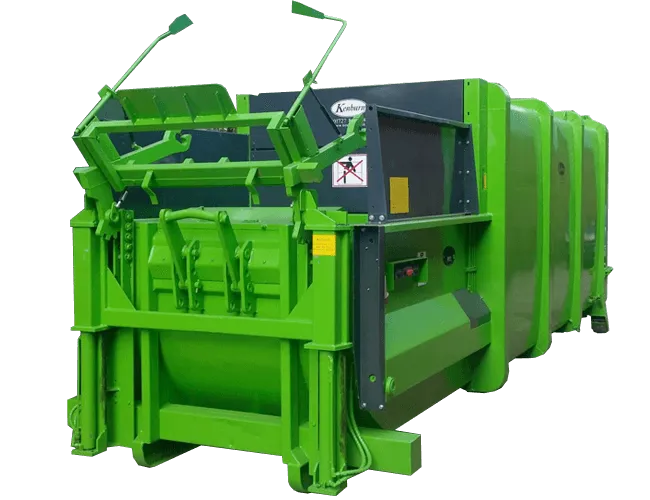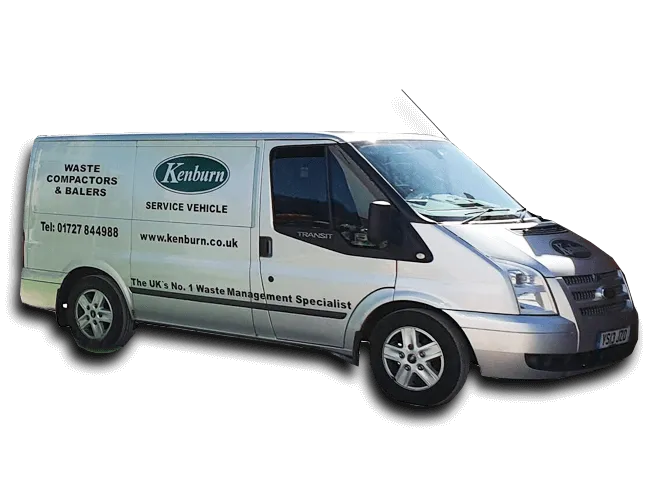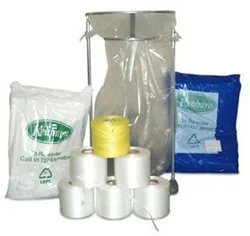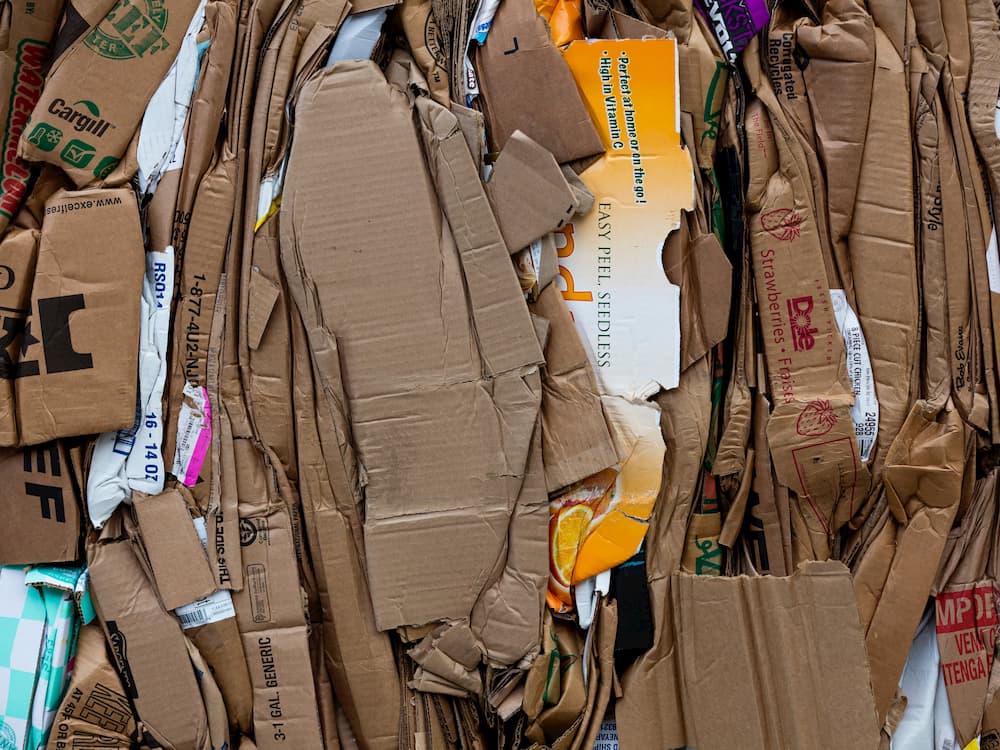 Waste balers are a great option for businesses looking to go green and at the same time reduce their ever increasing waste management costs. By using balers, a business can save time, space and even recover costs by reselling waste materials. Choosing a waste baler to fit your needs, budget and waste composition has never been easier. In this article, we’re going to look at the key questions to ask yourself when looking for the right baler and supplier.
Waste balers are a great option for businesses looking to go green and at the same time reduce their ever increasing waste management costs. By using balers, a business can save time, space and even recover costs by reselling waste materials. Choosing a waste baler to fit your needs, budget and waste composition has never been easier. In this article, we’re going to look at the key questions to ask yourself when looking for the right baler and supplier.
The role of any waste baler is to compact waste; cardboard balers are optimised for the compaction of cardboard. Unlike plastic waste, where there’s often confusion of which types of plastics can be recycled, this is rarely the case when it comes to baling and recycling cardboard.
Cardboard is one of the most widely recycled materials in the UK and recycling cardboard waste is far better for the environment than making cardboard from new materials. Recycling cardboard waste also saves on energy usage and emissions compared to producing new materials.
Under high pressure, large volumes of cardboard waste can be typically compacted on a 5:1 compaction ratio and all the bales produced are immediately recyclable. For polythene film it would be 8:1.
Both horizontal and vertical balers are available to suit different requirements, however the most common type of baling machine for cardboard is a vertical baler, which compresses the waste materials with downwards force and typically has a top door that opens for feeding the material and a bottom door that opens to allow for the bale produced to be ejected on to a pallet.
How do vertical balers work?
- Baling wire or strapping is fed through the back of the machine and along the base.
- When the top baler door is opened, the cardboard waste can be loaded into the baler.
- The hydraulic ram crushes the contents of the chamber under high pressure.
- The loading process is repeated.
- A “full light” comes on when the bale is ready for tying.
- The baling wire or strapping tape that is being used to secure the newly compacted baled material is tied and the bale ejected onto a pallet.
Why do you need a cardboard baler?
An abundance of cardboard waste is a problem for which many businesses suffer – and for most of them it is practically unavoidable due to the nature of the deliveries they receive from their suppliers. A cardboard baler helps these businesses to overhaul their recycling operations by offering a number of key benefits:
Cross-contamination: Baling cardboard waste practically removes the risk of contaminating it. This is important because clean cardboard generates a better revenue than cardboard contaminated with food waste for example.
Transportation: Compacted and baled cardboard waste on pallets can be moved far more easily than loose materials. Additionally, you won’t be transporting fresh air, so the more weight you’re able to transport on a vehicle the better the revenue you’ll receive.
Waste removal costs: Reducing the physical volume of your cardboard can have a major positive impact on waste expenditure. It’s much quicker and crucially, cheaper to organise the removal of compacted waste compared to handling loose waste. Also, if you’re currently putting loose cardboard into a wheelie bin or skip, you’ll be paying to have the waste removed, whereas installing a baling machine will allow you to generate revenue for materials you currently pay to have taken away.
Sustainability: Cardboard balers provide businesses with a financial incentive to recycle, making them more willing to embrace sustainable practices.
Storage: Rather than having overflowing waste bins on your site and having to pay for skip hire, cardboard bales can be stored much more efficiently in the space already available.
Choosing your cardboard baler
Cardboard balers do not come in a one-size-fits-all solution. Kenburn has a wide range of waste balers, each offering a different set of benefits. These are some of the things to think about when choosing a cardboard baler:
Volumes of waste that require baling
The most important factor when selecting the right baler is the volumes of waste you’re intending to compact both now and in the future. Depending on the model, bale weights range from 50kg to over 500kg and baling machine rental costs start from only £12.50 per week.
To ensure you purchase or rent the correct machine for your needs, a member of Kenburn’s sales team can visit your site to conduct a free of charge, no obligation survey. By analysing the volume of waste cardboard you produce, we can make recommendations as to which is the right baler for you and since we’ve been helping businesses save money on their waste costs for more than 30 years, you can be assured that Kenburn Waste Management will provide you with the most cost effective solution.
Do you need to bale other forms of waste too?
Businesses that take delivery of large amounts of cardboard are often likely to have other waste streams – chief amongst these is plastic. Considerable amounts of plastic waste will also require their own recycling solution.
If this is the case for your business, you’ll need to invest in a baler capable of handling both forms of waste, as some cardboard balers will be unequipped to do so easily. All Europress Balex balers that Kenburn stock boast two modes of operation – one for cardboard and the other for plastic.
Where will you locate the baler and how much space do you have available?
When choosing the location of a baler, it is important to consider the noise levels that will be produced when operating the machine. With a really low noise level of just 59dBa, the quiet operation of Balex balers ensures a more comfortable environment for the operator and anyone working nearby.
Space on the factory or warehouse floor can often be at a premium and so businesses must be careful that the baler they choose isn’t so big as to hinder everyday operations. Kenburn supply balers in a range of sizes, with all dimensions listed in the specifications. Where height is an issue, the cross cylinder design of our range of vertical balers reduces the overall height of the machine and this along with the small footprint means that there is more flexibility on where the machine can be located.
It’s also important to consider the space at your business’ disposal for storing the cardboard bales on pallets. While compacted waste takes up less space than loose waste, you still need to be sure that enough of your existing waste storage space can be converted to store cardboard bales.
Choosing your supplier
Founded in 1987, Kenburn has an established reputation as being a leading UK supplier of waste compactors, balers and other waste handling equipment. In its 30th anniversary year, Kenburn was acquired by an Employee Ownership Trust and is proud to be owned and managed by its employees.
100% Owned and Managed by our Employees
For Kenburn, Employee ownership means that everyone in the business is focused on the financial success of the company and the service we deliver to our customers.
We care – about our business, our customers and our people.
Kenburn has been ISO 9001 accredited since 1995 and approved as a Safe Contractor since 2008, which means that you can rest assured that our organisation delivers exemplary customer after sales support and health & safety management systems.
With a long and successful track record in the waste management industry, Kenburn has built a reputation as one of the UK’s leading suppliers of waste Compactors and Balers. We have installed well over 4,000 machines and count many household names amongst our extensive customer base.
To learn more about what a cardboard baler could do for your business, contact us or call Kenburn Sales on 01727 844988.

